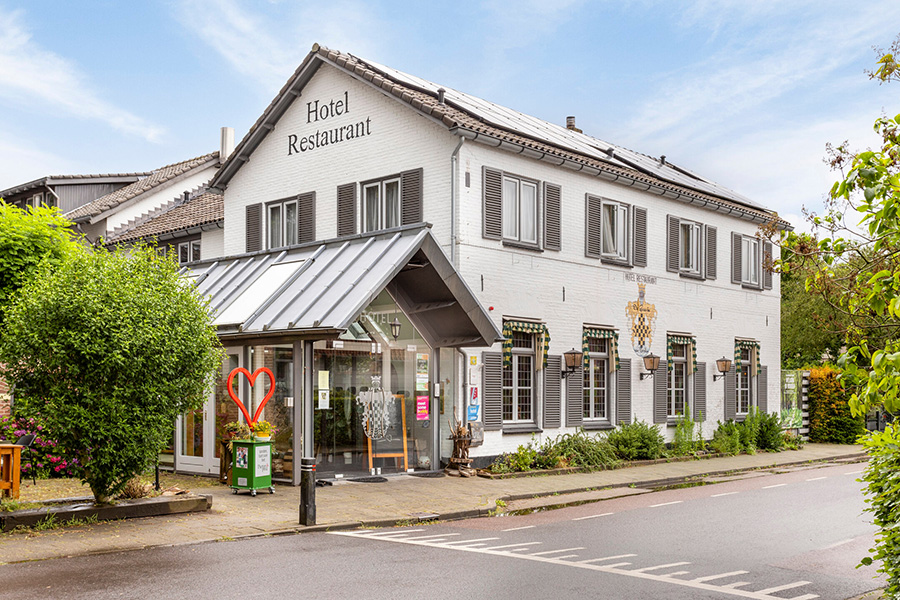
Can hotels still get around Booking.com?
Background and the impact for hotels
For the last 2 years, Booking.com has been under a magnifying glass from both consumers and European regulators and competition authorities. Most of the publicity was caused by the Spanish fine of almost half a billion euros, the claim by the Joint European Hotel Federation (10 thousand participating hotels) and recently the launch of a mega claim by the Dutch consumer association against Booking.com (130 thousand signatories). This comes on top of Booking's already bad reputation.
At the same time, bookings through Booking.com reached new record highs and record profits were recorded. The net profit margin was 25-30 per cent, compared to an average for listed companies around 12 per cent. The number of people worldwide staying overnight via Booking daily exceeded 1.5 million (+30 per cent vs. pre-Corona) for the first time in 2024: an illustration of the company's success. Because of good results, Booking's CEO received an annual income of $126 million (including stock dividends & bonuses) in 2024, one of the highest in the world.
This raises a number of questions: What is going on now? What developments are playing in the background? What are the effects for hotels? And perhaps most importantly: what can hotels learn from it?
Brief history
Booking started as the Netherlands' largest tech company about 30 years ago. The company owed its success to bringing hotel bookings online on a global scale. Smaller hotels often did not yet have their own website with a booking engine. What started in a student room at TU Twente grew into a world leader in the market for Online Travel Agents (OTAs) in 10 years. At the same time, competitors were bought up (Kayak, Priceline) and commissions went up. Its market share grew to around 90 per cent (in Europe). At the same time, dependence on Booking.com grew, especially for some smaller hotel which sometimes became dependent on the Booking platform for up to 90 per cent of their bookings.

Restriction of competition by price parity
An important part of Booking.com's contracts was that hotels undertook to offer the lowest online price guarantee through Booking. This also meant that hotels could not undercut the Booking price on their own websites. This helped Booking's growth immensely. Travellers did not have to search further for the lowest price and it became impossible for hotels to pass on the higher cost of indirect bookings. On an individual hotel stay, a commission of, say, 15 per cent may not seem much, but consider the fact that the average profit margin of hotels is around 10 per cent. This is popularly called a "strangulation contract" that deprived hotels of the freedom to set their own prices.
Another effect of price parity was that it frustrated the entry of new OTAs: new entrants could not offer below Booking's price and thus could not build market position. Price parity thus functioned as an effective entry barrier and actually prevented potential competition for Booking.
European regulatory response
After booking had been under fire from the European Competition Authority for years, the Digital Markets Act (DMA) was introduced in 2022. These European rules define so-called 'Gatekeepers': digital platforms, have a major impact on the internal market and have built up lasting dominance, making it difficult or impossible for consumers to avoid these companies. Gatekeepers have to comply with Brussels' rules when it comes to transparency, pricing, privacy, etc. One of Brussels' spearheads is the price parity clause: it was banned from 2024. This means that from that date, hotels will be able to offer their rooms more attractively, thus giving consumers more to choose from. At the same time, however, Google rules have also changed, putting pressure on the visibility of smaller sites, and Booking.com has increased its grip on Google. Booking is the largest online advertiser on the Google platforms and thus buys a better online position. The market share of OTAs even seems to have risen slightly further in recent years (now estimated at just under 40 per cent ). So despite the good intentions, the DMA seems to be counterproductive for smaller hotels at first glance.
Decline in margins smaller hotels
After corona, the number of hotel stays increased sharply, the market share of OTAs/Booking returned to pre-corona levels and costs rose sharply; especially energy & labour. As a result, hotel prices in the Netherlands rose sharply. As a result of fixed commissions, Booking's revenues and profits increased correspondingly and smaller hotels' already low margins fell. Hotel owners' pain thus translated into Booking's pleasure. Thus, since the pandemic, an increasing percentage of the hotel price goes to OTAs/Booking and a smaller margin remains for smaller hotel owners. The planned VAT increase on hotels from 2026 causes an identical effect.
Friend or foe?
For smaller hotels, Booking handles a significant proportion of their bookings (ranging from 25-90 per cent of bookings). For larger hotel (chains), these percentages are significantly lower and they also pay significantly lower commissions. The advantage of OTAs is the visibility and booking convenience these sites generate. This is also known as the 'billboard effect': through the OTAs, smaller hotels become more visible and this generates additional bookings (both direct and through OTAs). For many hotels, the 12-30 per cent Booking commission hurts because of the low margins in the hotel industry. Many smaller hotels pay more monthly to Booking than they earn as hotel owners. This illustrates that the commissions are perceived as excessive. Given Booking's dominant market position, there is really no real alternative for many smaller hotels. Without indirect bookings through OTAs, most smaller hotels would not survive. They are thus 'condemned' to Booking, or 'locked in'. So it pays to invest in online presence. Independent hotels should focus much more actively on direct bookings, including through AI, high SEO scores and booking convenience. Instead of depending on platforms, they should see those platforms as pieces of the puzzle in their own strategy.
And guests can be made aware of the hidden fees that Booking still charges. Direct booking should pay off. Then Booking's market share falls and the platform becomes a search engine again instead of an expensive booking engine.

Nico Mensink was born and raised in the Achterhoek region (Zutphen/Warnsveld). He studied Economics in Groningen and later moved to The Hague. For twenty years, he worked there as an economist and relationship manager in international banking (FMO).
In 2022, he made his dream come true: he returned to his native region and started Hotel Grand-Café 'De Gravin van Vorden'. That is located in a historic building opposite Vorden railway station. Before De Gravin van Vorden, the building housed hotel-restaurant Bloemendaal. In the past, the building was in the middle of an industrial area. In café Bloemendaal, factory workers still received their pay packets at the end of the week. The café was also a gathering place for travellers, holidaymakers and Vorden citizens.
Mensink wrote this article in a personal capacity because he wants to show his fellow hoteliers what Booking.com is and how to deal with it as an independent hotel. Especially now that both consumers and thousands of hoteliers in Europe are preparing a mass claim against the website that is so powerful in the industry. The article aims to raise awareness, inspire and inform the industry.



